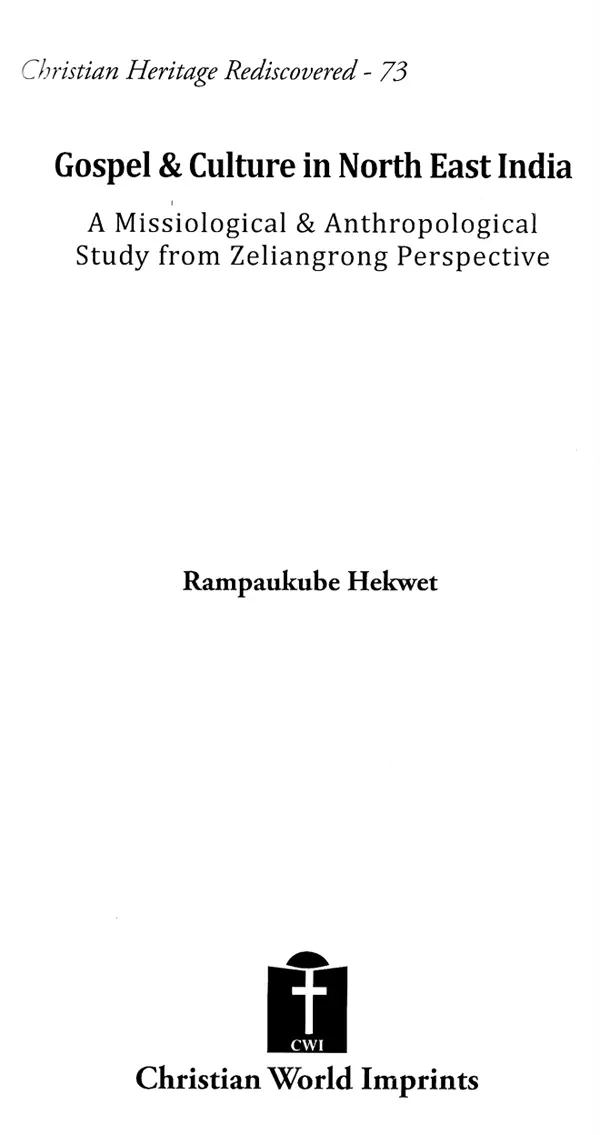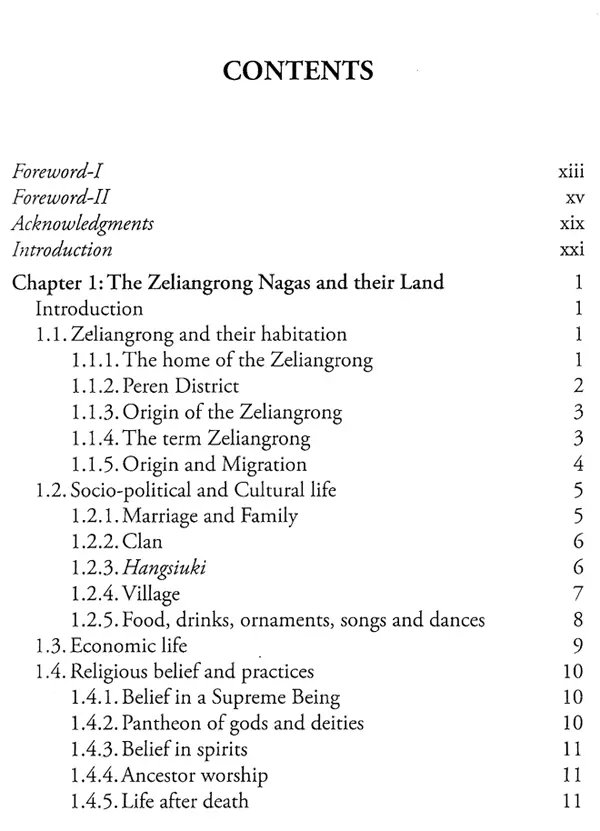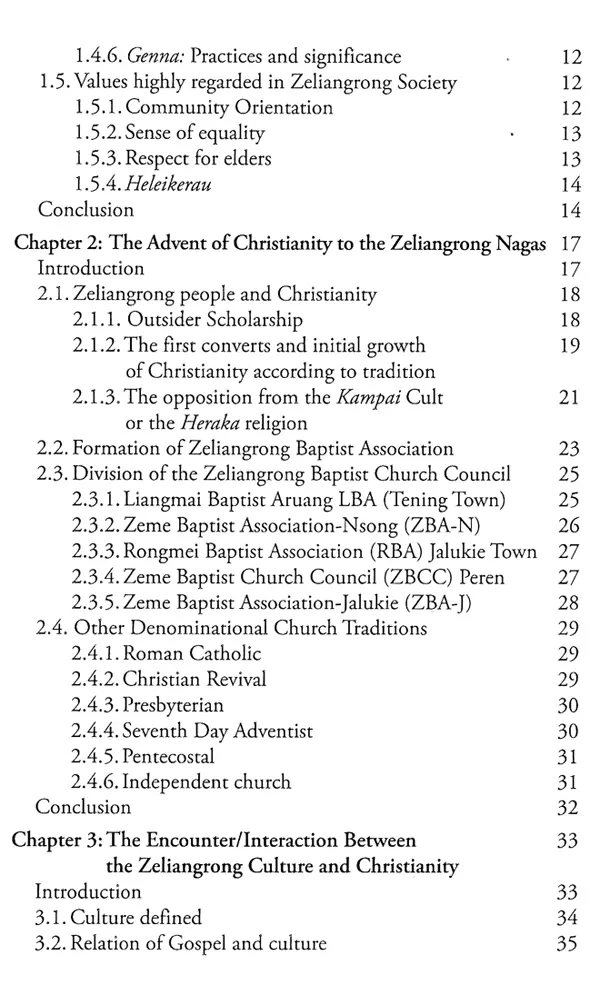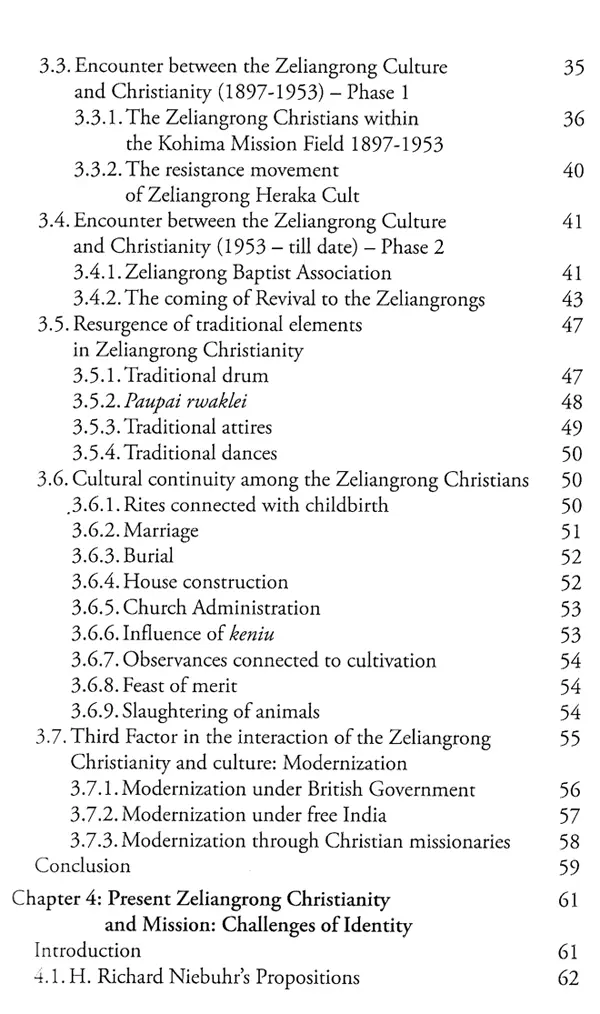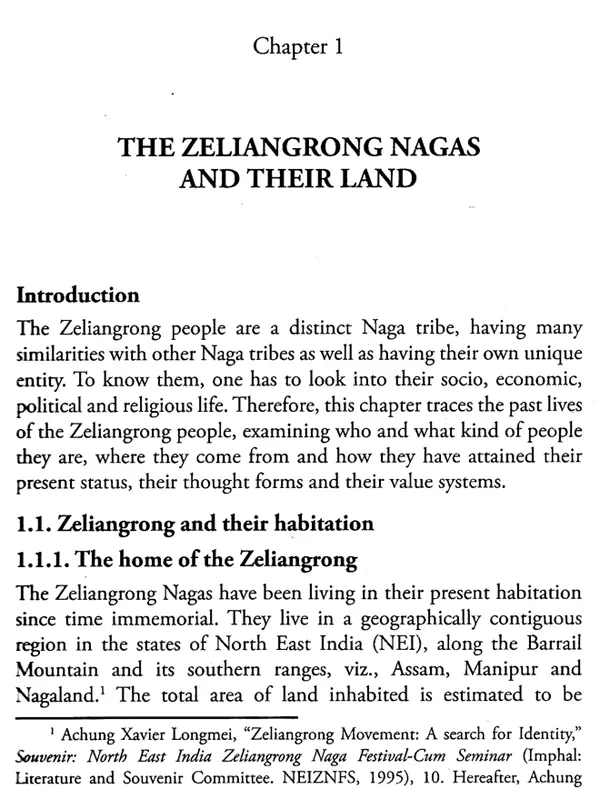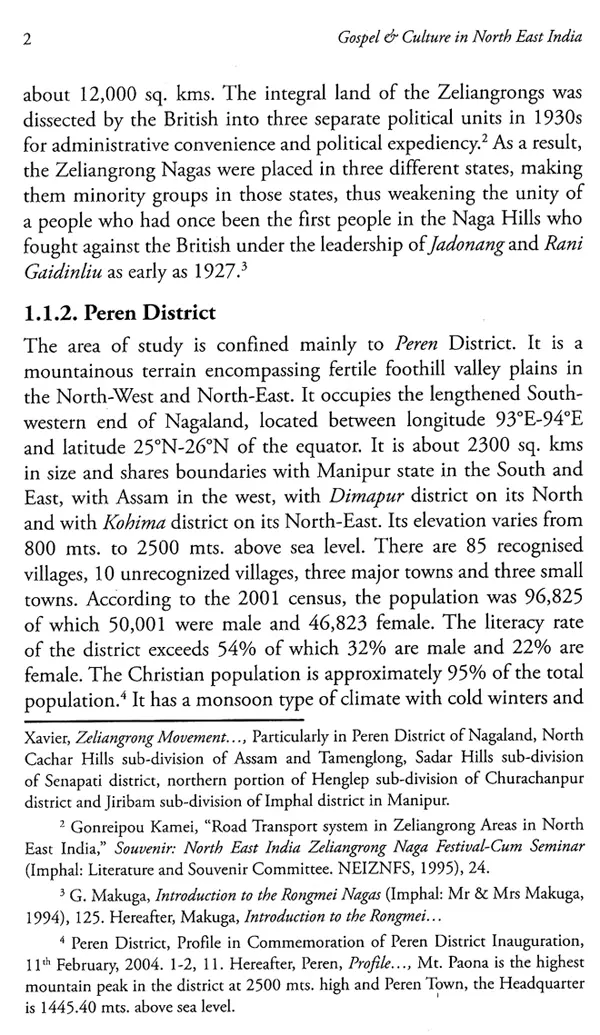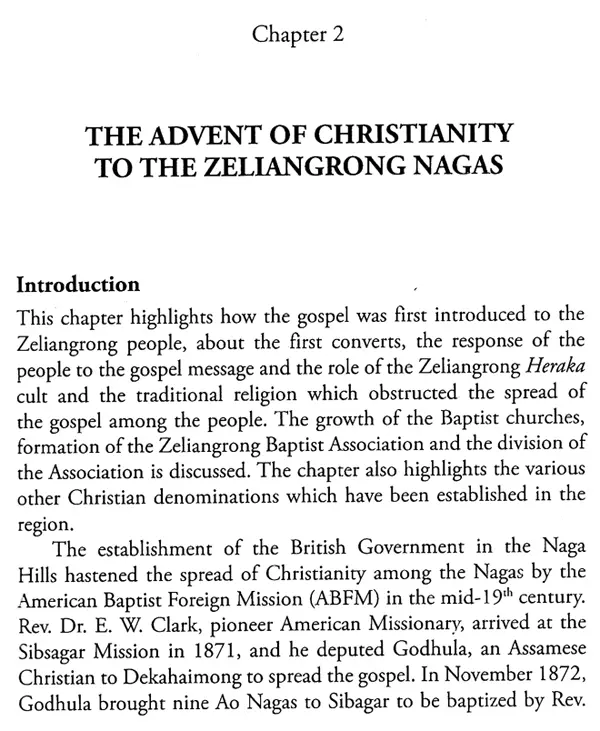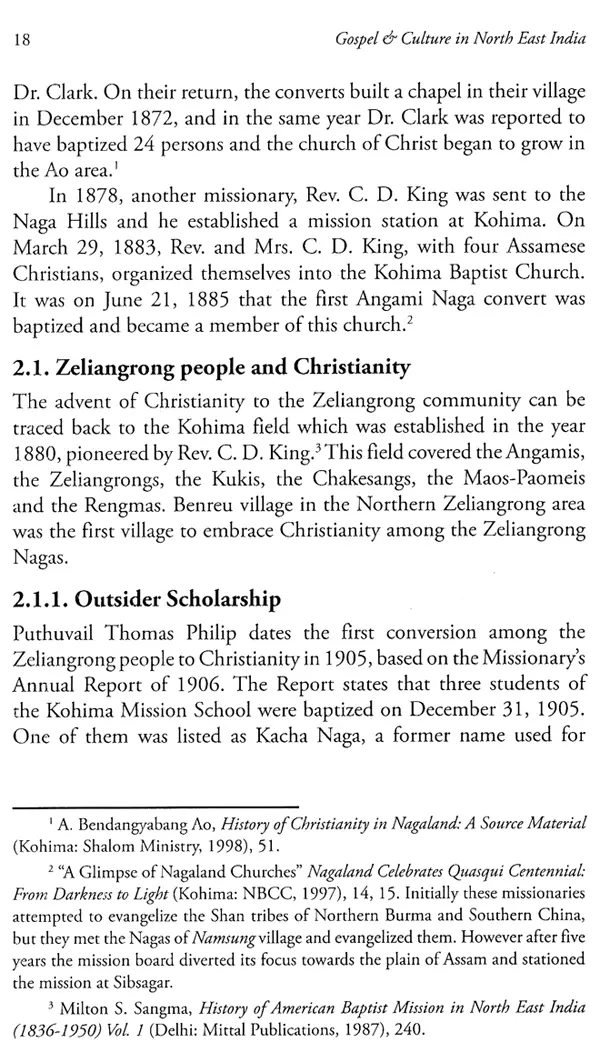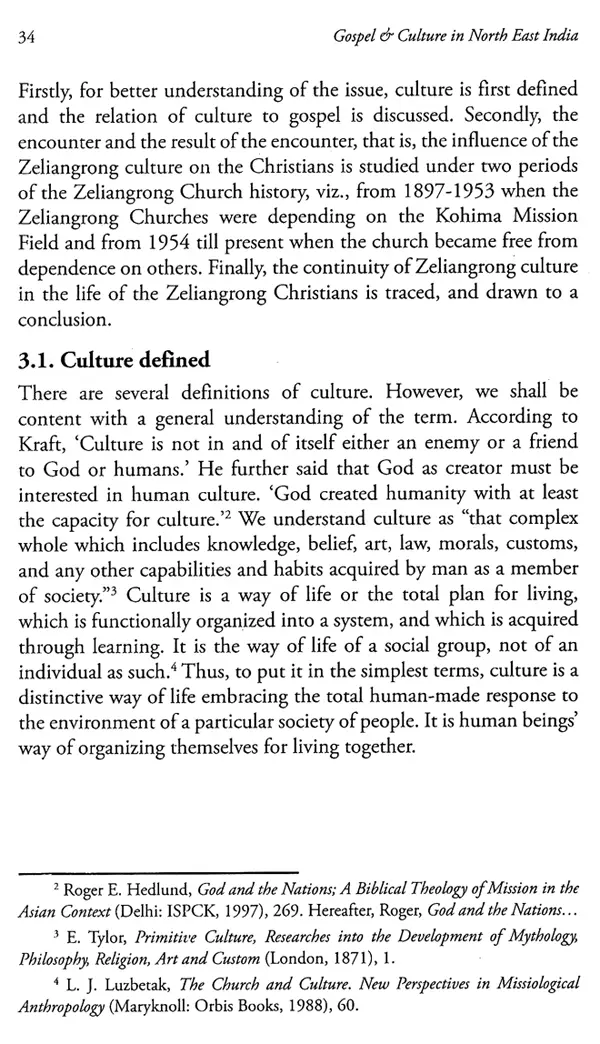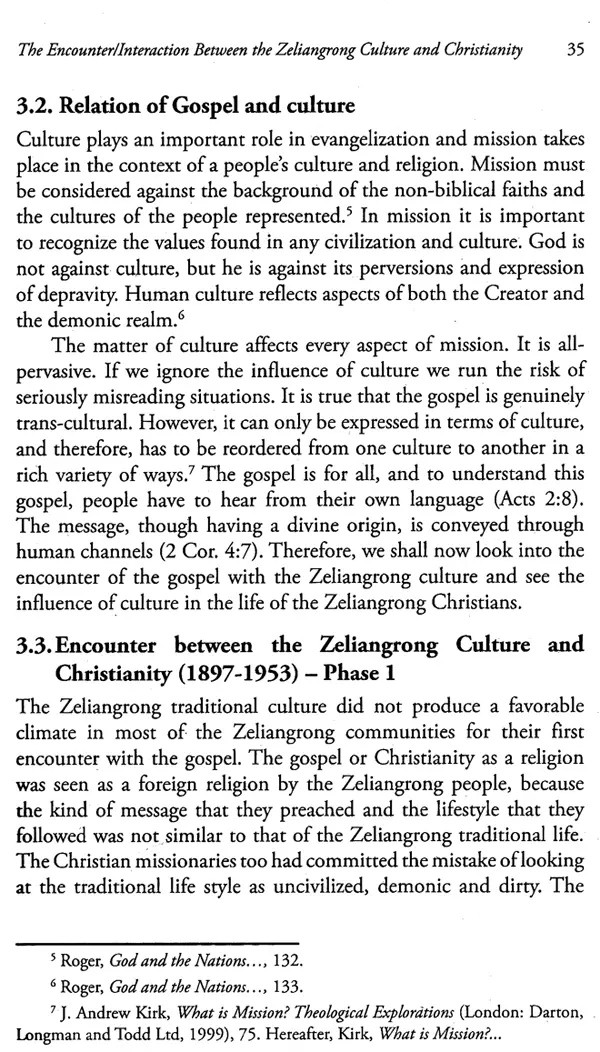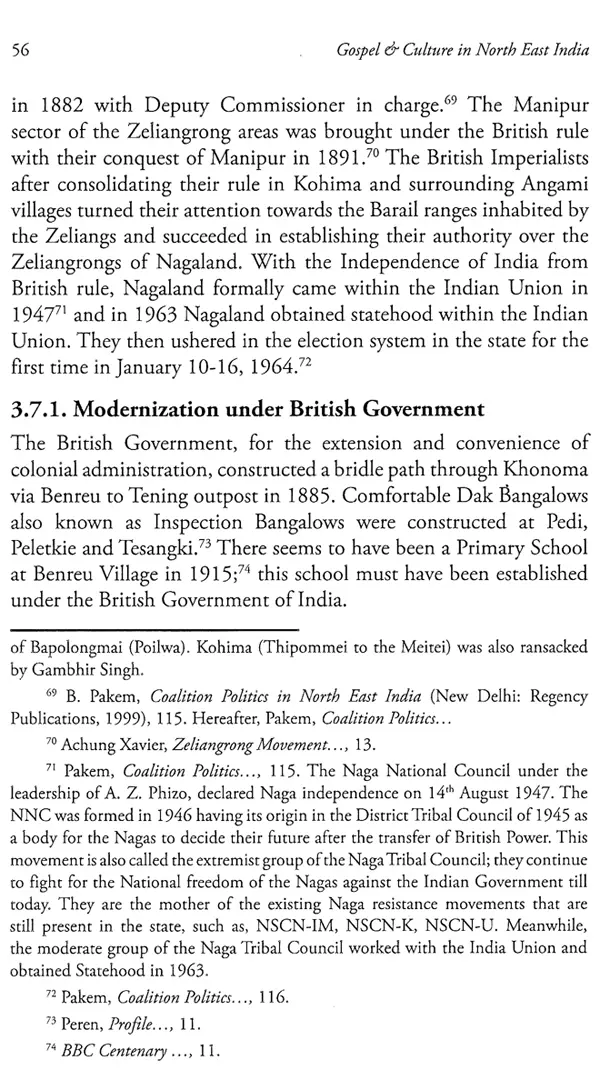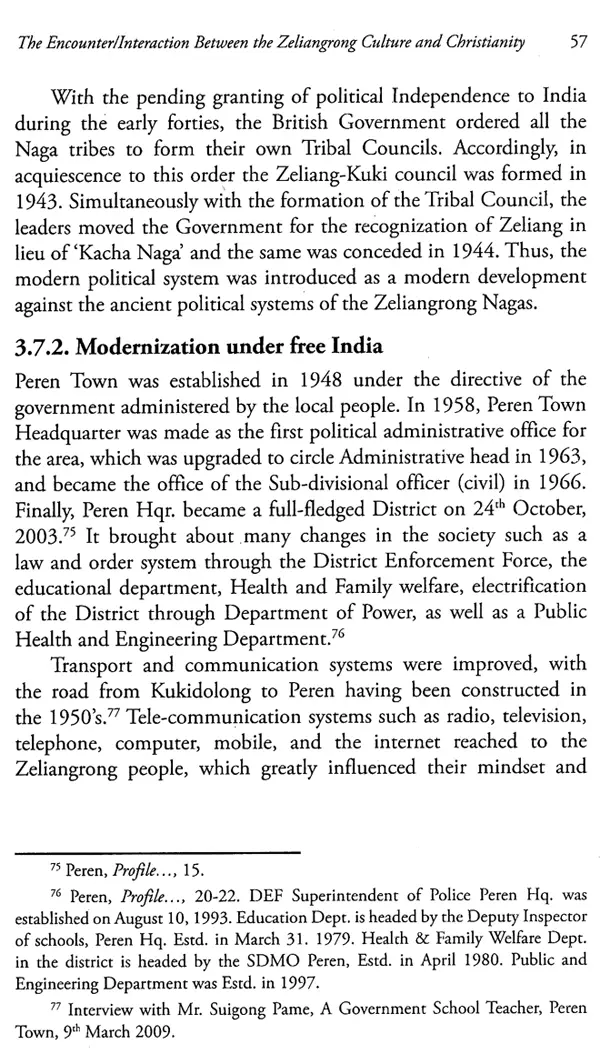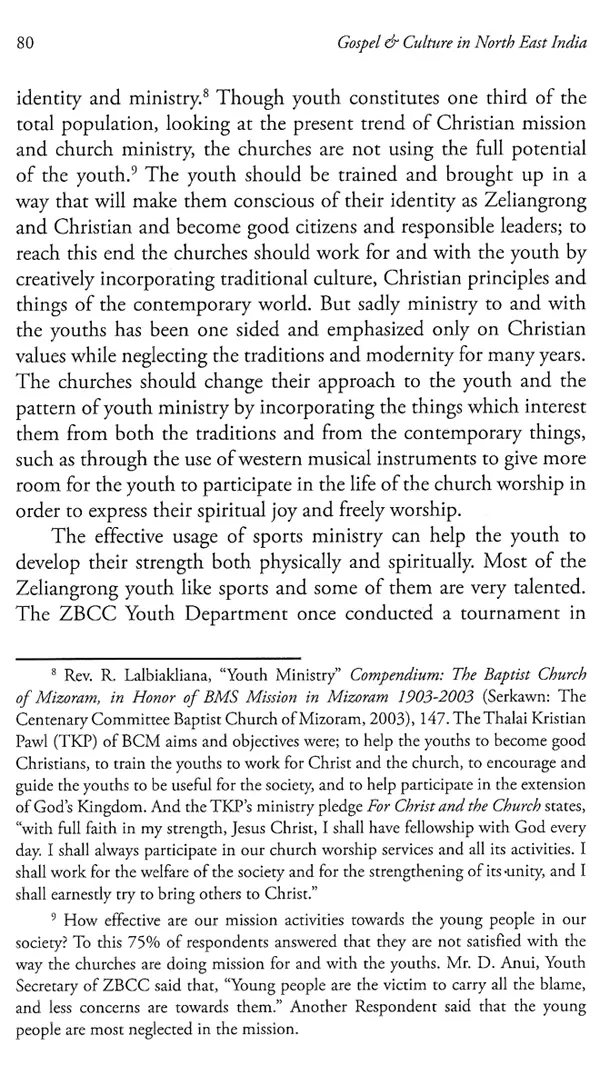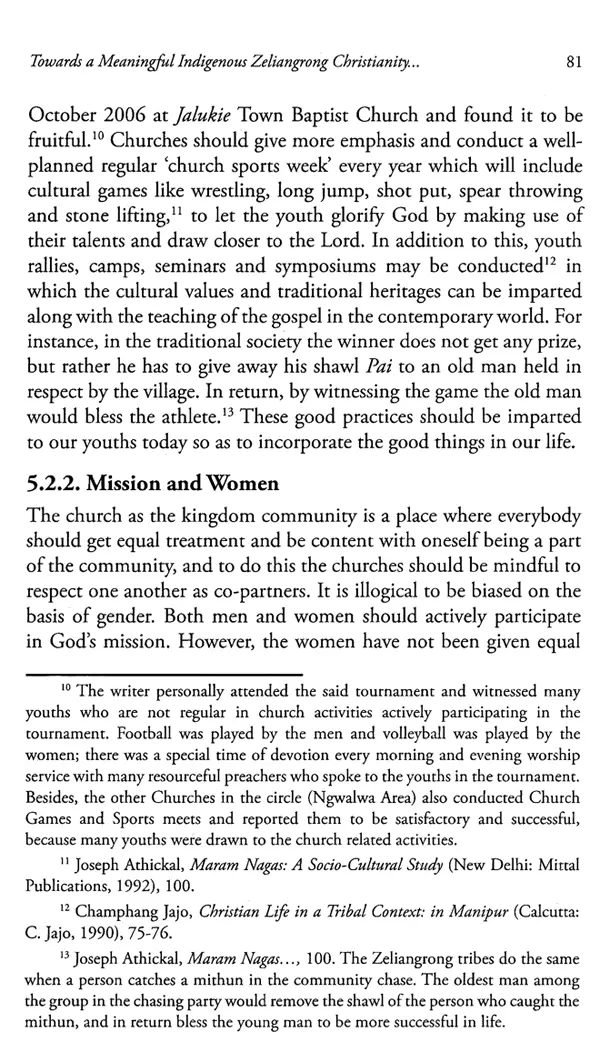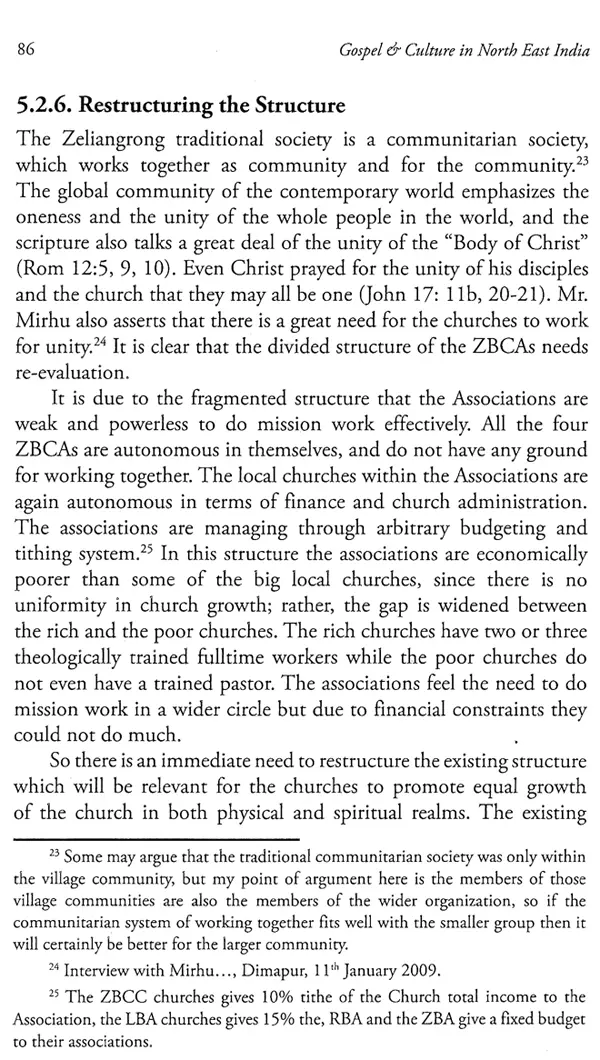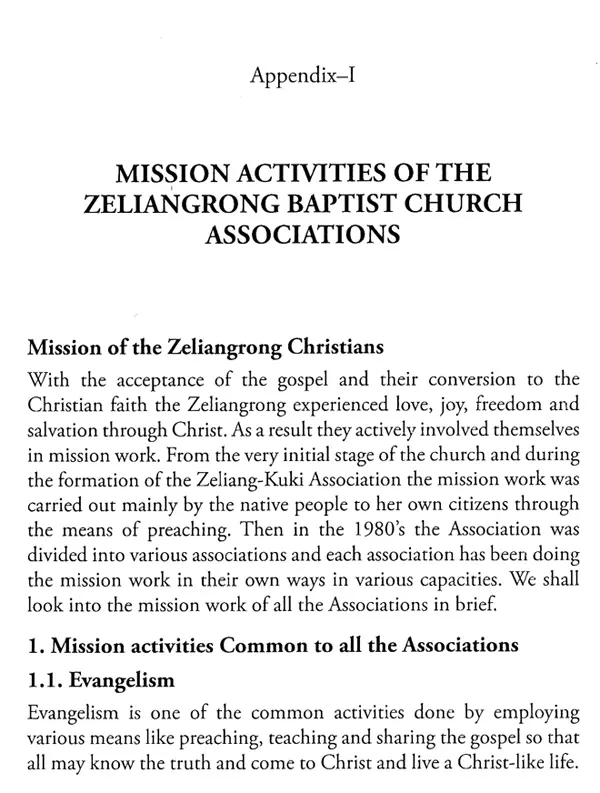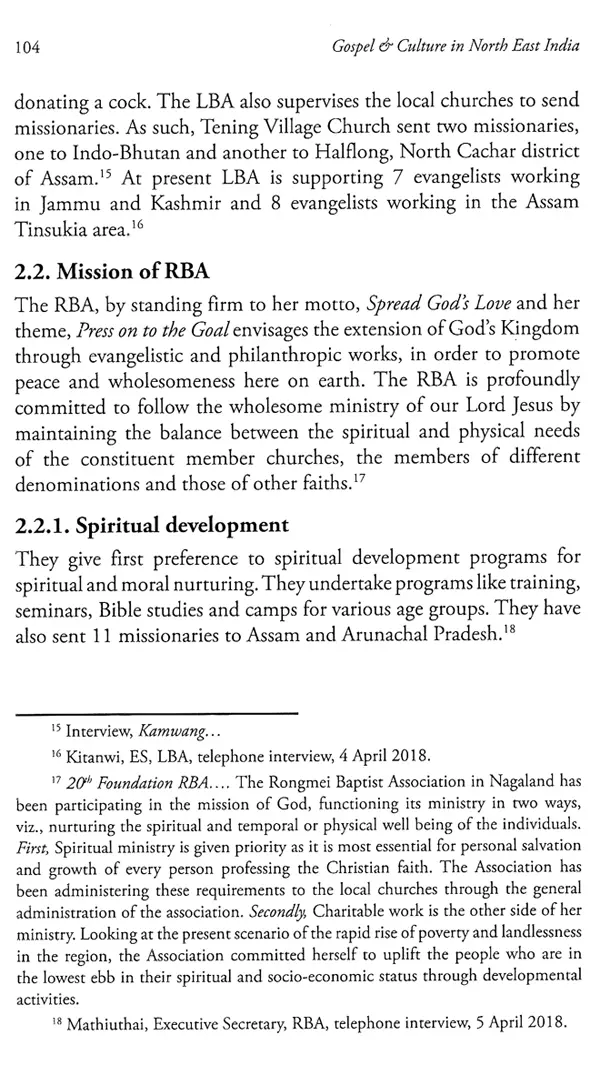
Gospel & Culture In North East India - A Missiological & Anthropological Study From Zeliangrong Perspective
Book Specification
| Item Code: | UBA425 |
| Author: | Rampaukube Hekwet |
| Publisher: | Christian World Imprints, Delhi |
| Language: | English |
| Edition: | 2019 |
| ISBN: | 9789351483342 |
| Pages: | 126 |
| Cover: | HARDCOVER |
| Other Details | 9.00 X 6.00 inch |
| Weight | 350 gm |
Book Description
The book introduces the pre-Christian Zeliangrong Nagas, then, it presents how Christianity came in contact with the people in the late 19th century and the subsequent conversion, the first being in 1897. It further discusses the growth of Christianity, formation of Zeliangrong Baptist Association in 1953 and the formations of various associations in the 1980's. Then it discusses the interaction of Gospel and the Zeliangrong culture which continues to exist till now.
The mission works of the Zeliangrong Baptist Associations (ZBAS) were studied and it argues that the Christian mission today is less-progressive unlike before, because the culture and the contemporary contexts are not being taken seriously. Therefore, the writer seeks to provoke the churches, missionaries and Christians in general, to revitalize the healthy cultural values and integrate them in the mission strategy for a contextually relevant and effective mission.
Rampaukube Hekwet is an Assistant Professor of Missiology. He hails from Ziumi Village, Senapati District of Manipur. He belongs to Zeme tribe of Zeliangrong Community.
He studied his Bachelor of Theology in 2000 from Trinity Theological College, Dimapur, Nagaland. He then served the Zeme Baptist Church Council (ZBCC) for two years as a Teacher cum Hostel Warden at Baptist High School, Peren. Then in 2004, after his Bachelor of Divinity studies from Eastern Theological College, Jorhat, Assam, he worked as a Youth Director at Peren Town Baptist Church (PTBC) for three years. In 2009, he finished Master of Theology from Aizawl Theological College, Aizawl. Then he superintended the Sunday School Department for a year at PTBC, he also served for a year as a lecturer at the Southern Asia Christian College, Thenmelpakkam, Chennai. Since 2011 he has been teaching at the Academy of Integrated Christian Studies (AICS), Aizawl.
He is married to Azaile, and they are blessed with a son and a daughter named. Ituilungbe Hau (Gideon) and lluneule Hau (Sophia).
Any mission engagement has to ask itself certain important questions: Is mission engagement primarily about changing the adherence of people from one religion to another? Is mission engagement also concerned with changing the culture of the people? Is the objective of mission engagement to change the identity, faith, culture and life- style of the people to make the same match the identity, faith, culture and life-style of the missionaries? A reading of Rampaukube Hekwer's book Gospel and Culture in North East India: A Missiological & Anthropological Study from Zeliangrong Perspective raises these very questions about mission engagements. One is reminded of the famous work of H. Richard Niebuhr, Christ and Culture, published in 1915 in which he presented five prevailing view points on the subject:
Christ against Culture: This first perspective encourages opposition, total separation, and hostility toward culture, and a commitment to create a separate, pure community (that is, culture) of Christians.
Christ of Culture: This second viewpoint is exactly the opposite of "Christ against Culture" because it attempts to bring culture and Christianity together, regardless of their differences. Liberation, process, and feminist theologies are recent examples.
Christ above Culture: This third position, as Donald Bloesch puts it, attempts "to correlate the fundamental questions of the culture with the answer of Christian revelation." Thomas Aquinas is the most prominent teacher of this viewpoint.
1. The Problem
The Zeliangrong Christian identity evolved out of the encounter between Christian mission and the Zeliangrong Naga culture, leading to confusion of identity, thereby exposing some failures in the Christian mission. This necessitates a study to analyze that encounter from a missiological perspective. The Zeliangrong people had received the gospel in the last decade of the 19th century. Since then, there was a tremendous growth of the church in the Zeliangrong area, through the effort of the Christian missionaries and the local churches. Thus, the encounter between Christian mission and the Zeliangrong culture took place. This encounter has had a significant impact on both the Zeliangrong people of other faiths and the Zeliangrong Christians. The Christian mission that came along with western imperialism on one hand seems to have presented the missionaries' western culture as God-ordained, in contrast to the native culture and traditional way of life which was perceived as primitive, dirty and anti-Christian. Sadly, the people seem to have responded obediently to this imposition, considering western Christianity as normative, with no critical assessment. As a result, Christians were accused by the traditional believers of devaluing and abandoning their own culture. On the other hand, though the Zeliangrong people responded to the Christian mission and became Christians, there is still an observable cultural continuity.
Consequently, a new identity came into being for the Zeliangrong Nagas as Zeliangrong Christians. Today, the Christian mission appears to be making less progress than before, as it is not ingrained in the culture of the people, and as the western culture is not the inherent culture locally. Thus, it weakens the eventual outcome of the mission works of the Church. Besides, the mission work now seems to be not very relevant for the people. Therefore, the researcher seeks to engage in an attempt at provoking the consciousness of the churches, missionaries and Christians in general, to revitalize the healthy cultural values and integrate these in the mission strategy which may be effective, and culturally and contextually relevant for mission work.
2. Scope and Limitation
The Zeliangrong Nagas live in three major districts of North East India, viz., Assam, Manipur and Nagaland; and it is difficult to cover the whole geographical area due to the time limit for the research. Therefore, the writer limits the study geographically only to Peren District in Nagaland, as the Zeliangrong people predominantly live here. The study also confines itself ecclesiastically to the Baptist denominational group as they represent the majority of the Zeliangrong Christians, and chooses to confine itself to the domain of cultural influence on the Zeliangrong Christians as this has not been widely addressed in other work.
